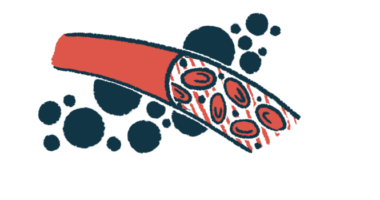My Son Shares Words of Wisdom on His 7-year Transplant Anniversary

“The surgery went well, with no complications, and the new heart and lungs are functioning beautifully.”
Aug. 7 marks the seven-year anniversary of posting that miraculous update to my son Cullen’s CaringBridge journal.
Living without pulmonary hypertension (PH) has undoubtedly changed his life for the better, but Cullen, 21, doesn’t say it was smooth sailing. He’s faced challenges with organ rejection, posterior reversible encephalopathy syndrome, osteoporosis, high blood pressure, and kidney disease. Nevertheless, he has surpassed the average survival rate for post-transplant patients.
I asked Cullen how he feels about his transplant anniversary. “I’m not dead,” he answered.
This isn’t sarcasm, disrespect for his organ donor, or a lack of sympathy for those who have died. He is candid about what matters most: He is still alive.
Cullen knows it probably isn’t the emotional response people would hope for, but I think he nailed it.

Cullen enjoys a summer day, weeks before his seventh transplant anniversary in August. (Courtesy of Colleen Steele)
He lost four close PH friends after they received transplants, and there are many others with similar stories. Out of respect for them, he doesn’t sugarcoat what is most important to him on this anniversary.
For inspiration, Cullen looks to two outstanding medical social workers and a nurse practitioner at Lucile Packard Children’s Hospital at Stanford. They guided, consoled, and supported Cullen throughout his pediatric PH and transplant journey.
Their positive influence has inspired him to work toward a degree in psychology, with the long-term goal of furthering his education and eventually pursuing a career as a therapist or a social worker.
The process has been slow, but Cullen learned long ago not to worry about timing. Instead, he focuses on the goal, takes his time, and enjoys each step along the way.
In a previous column, I shared Cullen’s joy as he graduated from high school. Although he was a year behind his peers due to transplant recovery and rejection battles — situations beyond his control — he was proud of the accomplishment.
Because of occasional health issues, Cullen has had to pace himself in college. He once again faced something beyond his control during the COVID-19 pandemic, which halted his education for a while. But he is taking online courses this year and believes he is making progress again.
Cullen builds his emotional and psychological strength from thinking bluntly. He accepted long ago that he will always be behind most people in his age group in terms of achievements and milestones. So, he reminds himself as needed to “get over it!”
His advice to others in the same boat is, “There is no point in dwelling on the fact that the pace you move at is and always will be different from others. Move at the pace you can, and slowly but surely, you will see yourself accomplishing things. That is all that matters.”
Cullen is pursuing an interesting career choice. He admits that he wasn’t happy attending appointments with psychologists and therapists during his medical journey. He wished to rely solely on the support of family and friends he trusted.
In hindsight, he acknowledges the value of seeing a specialist who can listen without being emotionally attached, and then offer professional and unbiased advice. He would like to see himself someday helping others through that difficult process.
He is straightforward when discussing his past, but he credits balance for getting him as far as he has.
Cullen remembers the day his dad and I sat him down and explained PH in terms that his then 8-year-old self could understand, including that it is a life-threatening rare disease that has no cure.
“It was hard to hear, but it was my nature from that point on to want and expect the truth at all times. I believe it helped me make better decisions about my health, especially when I transitioned to adult care last year,” Cullen said.
“Having my parents and medical team be upfront about my health taught me to be a strong self-advocate, to know what I need to look out for, and how to do things myself. I’m not sure how I would have handled transplant, or even COVID-19, if I had been overcoddled and not given a chance to feel, express, learn, and deal with things as they were happening.”
Cullen believes that nurturing is essential, too, which is where the balance comes in. He doesn’t advise anyone to throw a child, or even an adult, into the deep end of the PH or transplant pool and expect them to swim it out independently. Kind and caring voices and helping hands continue to be part of his survival throughout his medical journey.
“As a former PH patient and now seven-year post-transplant survivor, my best advice to others is don’t try to do everything on your own,” Cullen said. “But don’t avoid the truth, either.”
***
Note: Pulmonary Hypertension News is strictly a news and information website about the disease. It does not provide medical advice, diagnosis, or treatment. This content is not intended to be a substitute for professional medical advice, diagnosis, or treatment. Always seek the advice of your physician or other qualified health provider with any questions you may have regarding a medical condition. Never disregard professional medical advice or delay in seeking it because of something you have read on this website. The opinions expressed in this column are not those of Pulmonary Hypertension News or its parent company, Bionews, and are intended to spark discussion about issues pertaining to pulmonary hypertension.









STEVE SALLEE
Right on. My sentiments exactly. By the way, I am a former Marine and that has been the Marine Corps attitude since its inception in 1775.
Colleen Steele
Steve, as my dad would say, "Once a Marine, always a Marine!".
Thank you for reading! I hope you are doing well! Stop in the forums when you get a chance and give us an update.
Gillian Meyer
Cullen is inspiring. Living with illness and going through so much. Accepting, strategizing and making a meaningful life for himself. And to your parents, I can only say I have the deepest respect for you.
Colleen Steele
Gillian, thank you so much for your kind words! It means so much to me that you not only read the column but felt inspired to comment!